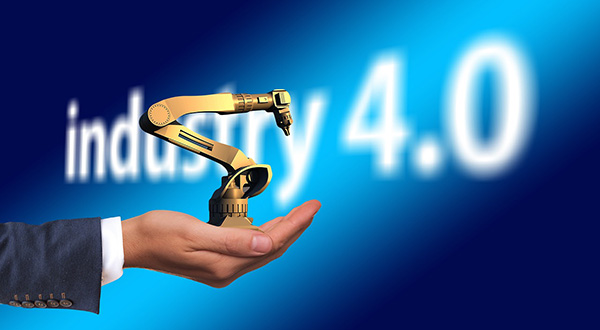Artificial intelligence applications in manufacturing will pave the way to the next stage of digitalization and Industry 4.0.

by Bill Rokos, CTO, Parsec Automation
In manufacturing outfits the world over, the days of clipboards, pencils, and human-only assembly lines are fading into the rearview as advancements like automation and the Internet of Things (IoT) take center stage.
But no industry is a monolith. Like any other field, manufacturing comprises a broad range of businesses with varying degrees of technological readiness and open-mindedness. Some are early adopters. Others take a more cautious approach. In a 2023 survey, my company found that 69% of North American manufacturers were still collecting most of their data through non-digital methods.
Broadly speaking, the industry is moving forward. Facilities are modernizing their operations with digital tools and platforms. Automation is helping companies operate more efficiently, accurately, and sustainably. Software solutions and connected devices are enabling manufacturers to monitor and manage their quality control, inventory, ingredient traceability, and more. As a group, we are adopting these tools and are advancing toward a digitalized future that has long been heralded as Industry 4.0.
Industry 4.0, also known as the fourth industrial revolution, can be visualized as a functional threshold that gets crossed once a facility achieves a sufficiently mature use of technology. While specific definitions vary, 4.0 generally covers four categories of technology: connectivity and data; analytics and intelligence; human-machine collaboration; and advanced engineering.
Because the manufacturing industry offers so much variety—in production, processes, and constraints—achieving Industry 4.0 might look different for every organization. But one particular technology is a can’t-miss for any manufacturer on the road to digitalization: artificial intelligence (AI).
AI can help manufacturers operate more efficiently, productively, and intelligently. Often integrating with software solutions like manufacturing execution systems (MES), today’s AI analyzes data captured by things like smart devices, radio-frequency identification (RFID) tokens, and video feeds. It can aggregate historical performance to identify and extrapolate trends, provide real-time insights about current production, and make intelligent recommendations for the future. With the data-driven approach that AI delivers, manufacturers can achieve precision and efficiency like never before.
Algorithmic production scheduling is a compelling example of a technology that can be greatly enhanced with AI. Whereas conventional scheduling tools may be inflexible, forcing teams to stick to a given schedule for an entire month—even if it no longer fits their needs—algorithmic production scheduling platforms are already helping manufacturers save time by taking over administrative processes. Prioritizing things like inventory, upcoming orders, and capacity, employees can set parameters that help ensure a facility is making the best use of its available resources, staff, and machinery.
When integrated with AI, production scheduling becomes even more impactful. Working with other AI-enabled components of the supply chain, these solutions will be able to foresee things like impending materials shortages, irregular consumer buying habits, and other disruptive events, giving businesses ample time to adjust.
And this is just one example of what AI will be able to do for manufacturers. Beyond production scheduling, AI can support quality control, collect data, identify bottlenecks, boost accuracy, improve traceability, and more.
However, success with AI is not a plug-and-play outcome.
My company’s survey found that two-thirds (66%) of North American manufacturers are unprepared to use AI, with barriers including staff knowledge (46%) and trust in the technology (39%).
Working toward AI adoption is a key touchpoint on the road to Industry 4.0, and it’s a step that can’t be skipped. To remain competitive in today’s market, leaders need to begin preparing their facilities for the kind of transformative improvement that AI delivers.
The most important step in this journey isn’t investing in the technology; it’s communicating AI’s value to the workforce—the end users—and affirming their value to the organization. Manufacturers won’t get very far into AI adoption if their team isn’t fully aligned with the plan. This means facilitating ongoing training, holding open discussions with team leaders to ensure solutions optimally align with worker needs and functions, and providing ample opportunities for up- and reskilling pathways.
Once the team is on board, leaders can begin the implementation process. While AI can absolutely affect wholesale change within a facility, taking a measured approach is the key to avoiding staff attrition and operational disruptions. Starting small can make course-correcting much easier if initial outcomes aren’t as expected.
Embracing AI is the next step in attaining the full promise of Industry 4.0.
Once manufacturers have successfully implemented AI into their facility’s operations, they will be catapulted to new levels of innovation. Data will drive every decision made and every facet of a production line. Teams will not only have access to troves of real-time insights, but they will also have the tools to interpret and contextualize them.
Arriving at Industry 4.0 will require achieving a certain threshold of efficiency and productivity, and manufacturers cannot do it alone. They need the kind of value-adds that AI and advanced technology bring. Every manufacturer is different, and every facility’s path to Industry 4.0 will be unique. But all roads go through AI.

Since 1999, Bill has spearheaded the development of Parsec’s manufacturing operations management (MOM) platform, TrakSYS. As Parsec’s longtime CTO, he has worked with many of Parsec’s customers worldwide. From implementing and architecting TrakSYS deployments to designing the latest features, Bill has been instrumental in Parsec’s (and TrakSYS)’s impact and success.
Scott Ellyson, CEO of East West Manufacturing, brings decades of global manufacturing and supply chain leadership to the conversation. In this episode, he shares practical insights on scaling operations, navigating complexity, and building resilient manufacturing networks in an increasingly connected world.